Scott AndersonRuth 3:1-5, 4:13-17 † Psalm 127 † Hebrews 9:24-28 † Mark 12:38-44 You can view a video of the service and sermon here. Robin Wall Kimmerer tells of an ancient ceremonial tradition among the indigenous coastal people in the Northwest. It always happened about this time of the year. If you’ve been out and about on the rivers in the past month or so, paying attention to what’s been happening in our waters, it may not surprise you. Kimmerer spotlights the story this way: Far out beyond the surf they felt it. Beyond the reach of any canoe, half a sea away, something stirred inside them, an ancient clock of bone and blood that said, “It’s time.” Silver-scaled body its own sort of compass needle spinning in the sea, the floating arrow turned toward home. From all directions they came, the sea a funnel of fish, narrowing their path as they gathered closer and closer, until their silver bodies lit up the water, redd-mates sent to sea, prodigal salmon coming home.[i] The return of the salmon, the yearly salmon runs was a foundation for life among the First Nations. Around this time of the year, they would camp along the coasts, gather at the mouths of the rivers, waiting and watching. The numbers were astonishing. Rivers filled with silver flashes as thousands upon thousands of Chinook, Chum, Pink and Coho returned after years at sea for their final act. I remember first being enthralled by stories and old pictures of the precarious fishing platforms above the wild waters of Celilo Falls on the Columbia River near The Dalles, Oregon. For 15,000 years, it became an annual gathering place of the First Nations when the salmon ran. Some 15 to 20 million salmon passed through those falls every year. Celilo was a site for treaty-making and feasting and celebration in this wild context of abundance—nation-building, you could say, in the very best sense of the term. They would come from all over to celebrate the abundance of the earth, to outdo one another with generosity in potlatches, to trade and make treaties and secure peace among their people. Celilo was the oldest continuously inhabited community on the North American continent,[ii] that is, until March 10th, 1957, when, within hours after the massive steel and concrete flood gates of the newly constructed Dalles Dam were closed and, 13 miles upstream, Celilo Falls and the settlement disappeared forever.[i] Kimmerer tells the story of the coastal people not too many miles to the west of Celilo “standing along the river singing a welcome, a song of praise as the food swims up the river, fin to fin.” But what doesn’t happen is equally telling: The nets stay on the shore; the spears still hang in the houses. The hook-jawed leaders are allowed to pass, to guide the others and to carry the message to their upriver relatives that the people are grateful and full of respect.[iv] Only after four days of safe passage is the First Salmon taken by the most honored fisher and prepared for a ritual feast. Kimmerer tells us, it is presented on a cedar plank in a bed of ferns, along with venison, roots, and berries, in sequence “for their places in the watershed.”[v] Only then are the nets set out. Everyone has a task, including the elders who remind the young, spear in hand: “Take only what you need and let the rest go by and the fish will last forever.” And they mean it. When the drying racks are full with the food they need for winter, they stop fishing. There is a fundamental understanding of reciprocity at play in these ancient stories and ceremonies. Kimmerer, understands this not only as a grateful recipient of these indigenous traditions, but also as a scientist. She notes that these runs of salmon fed not only her people, but the forests as well. The spent carcasses of spawned-out salmon, dragged into the woods by bears and eagles and people brought much-need nitrogen from the oceans to the forests. Using stable isotope analysis, scientists traced the source of nitrogen in the wood of ancient forests all the way back to the ocean. Salmon fed everyone.[vi] I wonder if it’s not the loss of this culture of reciprocity that Jesus laments the most as he sits near the temple treasury seemingly just wasting time, paying attention. As Mark often does, we have two stories that are placed beside each other for comparison. The first finds Jesus warning his disciples: “Beware of the scribes.” This would certainly have caught the attention of Mark’s first century audience, for the scribes were the honorable and upstanding citizens of the day. They were the lawyers and teachers and professionals—the respected and the privileged. Yet there was something about them—in them—that revealed a polite society that had so lost its way that they were devouring widow’s houses—leaving people to the streets—and had ceased to care or even notice. Listen to how Jesus describes these upstanding citizens: they want to walk around in long robes; they want greetings in the marketplaces; they want the first seats in the synagogues; they want the first places at the dinners. The scribes are known by their wanting, they are consumed by consuming, they are kept up by keeping up appearances. Now, we should note the scribes don’t always get a bad rap in Mark. Only a few verses before today’s text Jesus is impressed by one of them.[vii] This tendency to paint any group too broadly or any individuals too absolutely is perhaps another symptom of our current sickness unto death. There is a warning here, I think, that a broken inner life leads to a broken life in the world that leads to widow’s houses being devoured, that leads to tent camps in our parks, that takes from those who need it most. But then look at the second story in this pair. Like the scribes, the widow also drops a gift to the temple treasury. By all appearances, she ought to go unnoticed. She tosses a couple of coins in the plate that amount to nothing while some of Jerusalem’s finest make notable donations. This woman’s paltry sum wouldn’t have made a dent as far as heating the temple or running the lights goes. But Jesus saw it for what it was. An act of pure generosity, a jaw-dropping act of faith, and a revelation that exposed the fault lines of injustice. Here, for anyone with eyes to see was a sign that the path they were on was robbing the people of their future. There is a deep structural problem revealed here in this temple of worship that needs fixing, a profane political reality that allows for the rich to walk care-free, basking in the glow of an admiring community while more and more widows’ houses are being devoured. And Jesus sees the writing on the wall. Houses such as these cannot stand. And in fact, this temple won’t. But that’s a story for next week. If we have ears to ear, Kimmerer and the long wisdom tradition that was here on this continent long before European colonists arrived wanting, helps us to distinguish between a culture of reciprocity and a culture of domination and consumption that is already devouring the future of our children and our children’s children. These women—at the treasury, facing a last meal—gave everything. These were astonishing acts of agency and wholeness, that fed everyone. Kimmerer notes that the First Salmon Ceremonies were, likewise, not conducted for the people. They were for the Salmon themselves, and for all the glittering realms of Creation, for the renewal of the world. People understood that when lives are given on their behalf, they have received something precious.[viii] And so, as an act of gratitude, they gave something precious in return. A lamp is lit. A table is set. Loaves and fishes may yet abound. Notes:
[i] Kimmerer, Robin Wall. Braiding Sweetgrass (p. 241). Milkweed Editions. Kindle Edition. [ii] See “Celilo Falls” entry in Wikipedia. Retrieved on November 5, 2021 from: https://en.wikipedia.org/wiki/Celilo_Falls. [iii] For more information, see John Caldbick. “Celilo Falls disappears in hours after The Dalles Dam floodgates are closed on March 10, 1957”, February 10, 2012. Retrieved on November 5, 2021 from: https://www.historylink.org/file/10010. [iv] Kimmerer, Robin Wall. Braiding Sweetgrass (p. 243). Milkweed Editions. Kindle Edition. [v] Ibid. [vi] Ibid., p. 244. [vii] Mark 12:34. [viii] Kimmerer, Robin Wall. Braiding Sweetgrass (p. 252-53). Milkweed Editions. Kindle Edition.
0 Comments
Leave a Reply. |
St. Andrew SermonsCategories
All
|
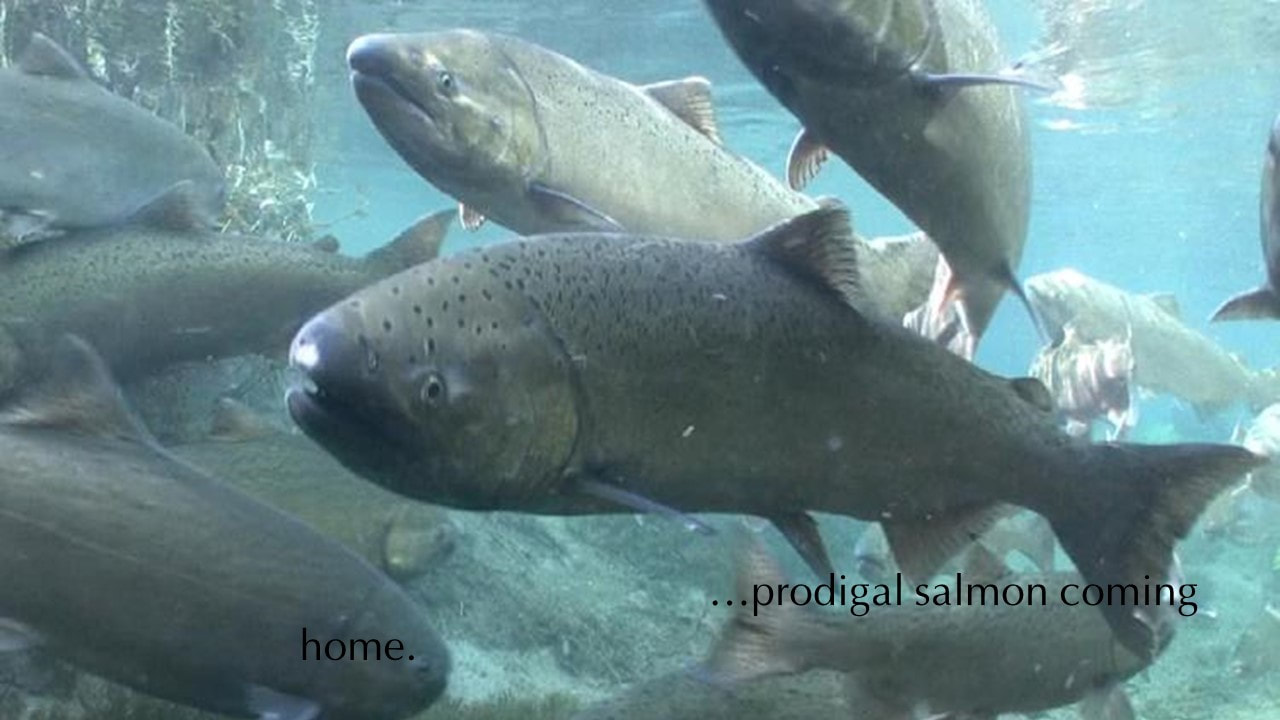
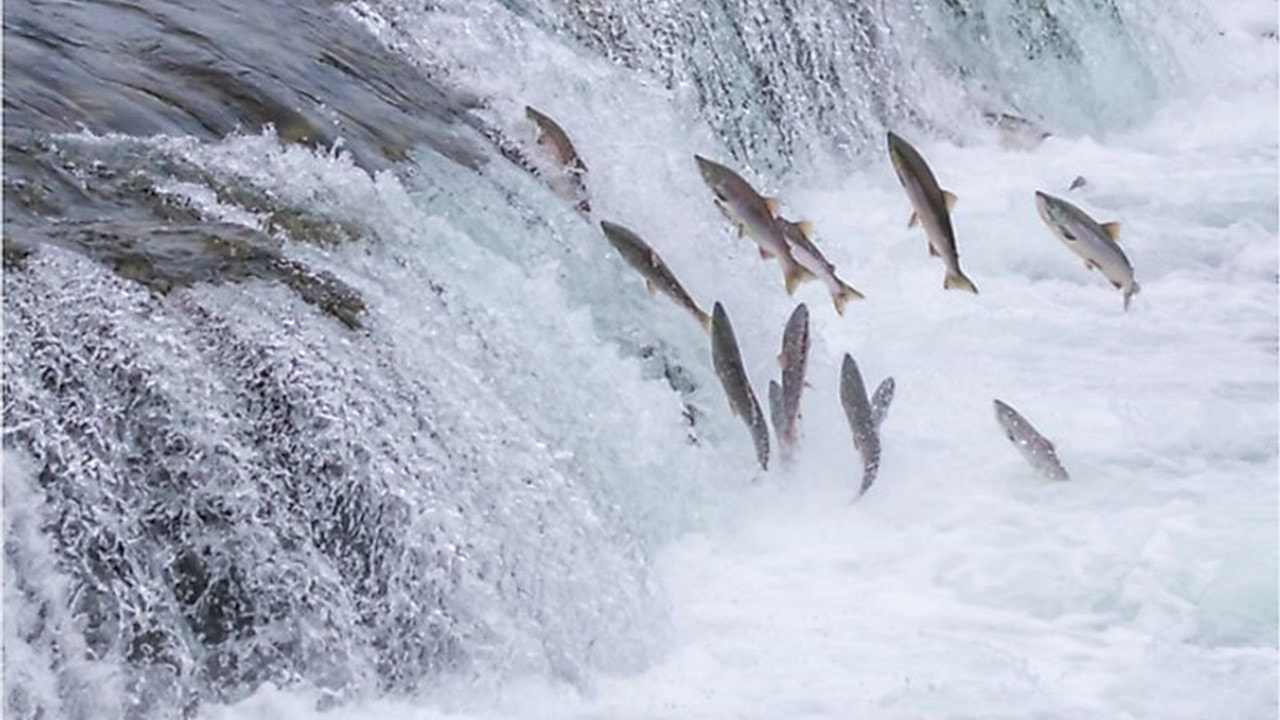
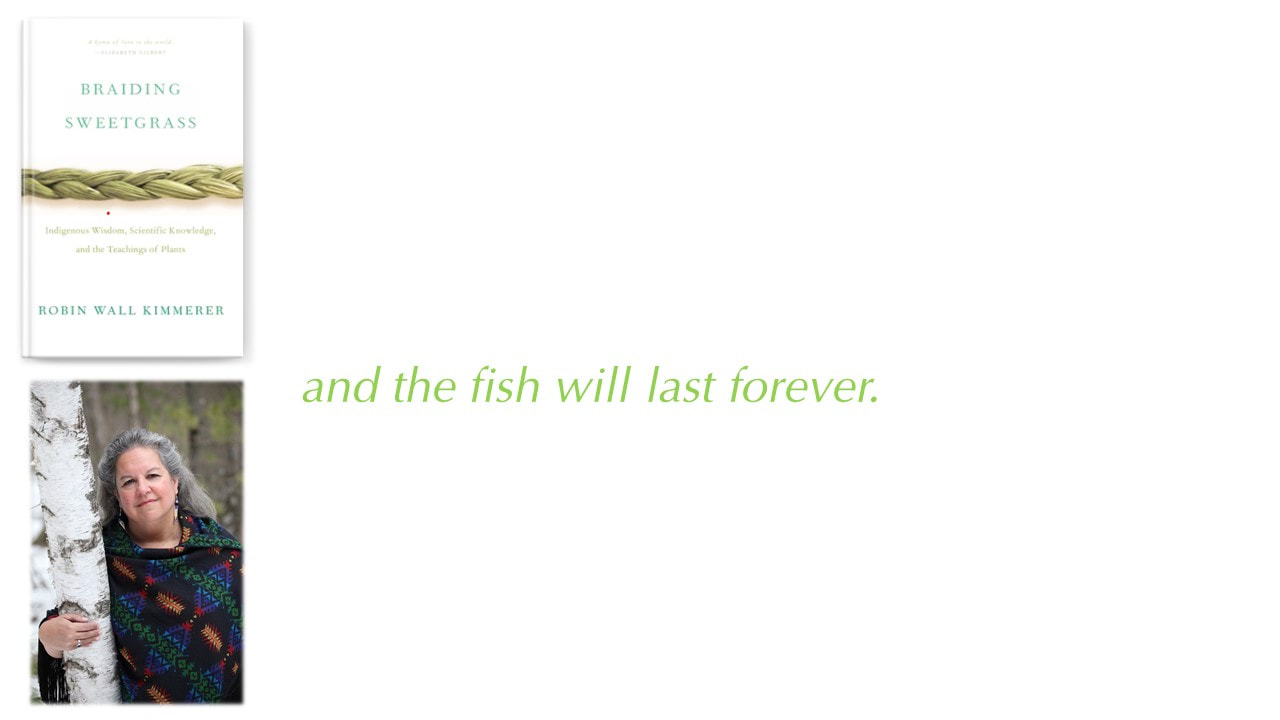
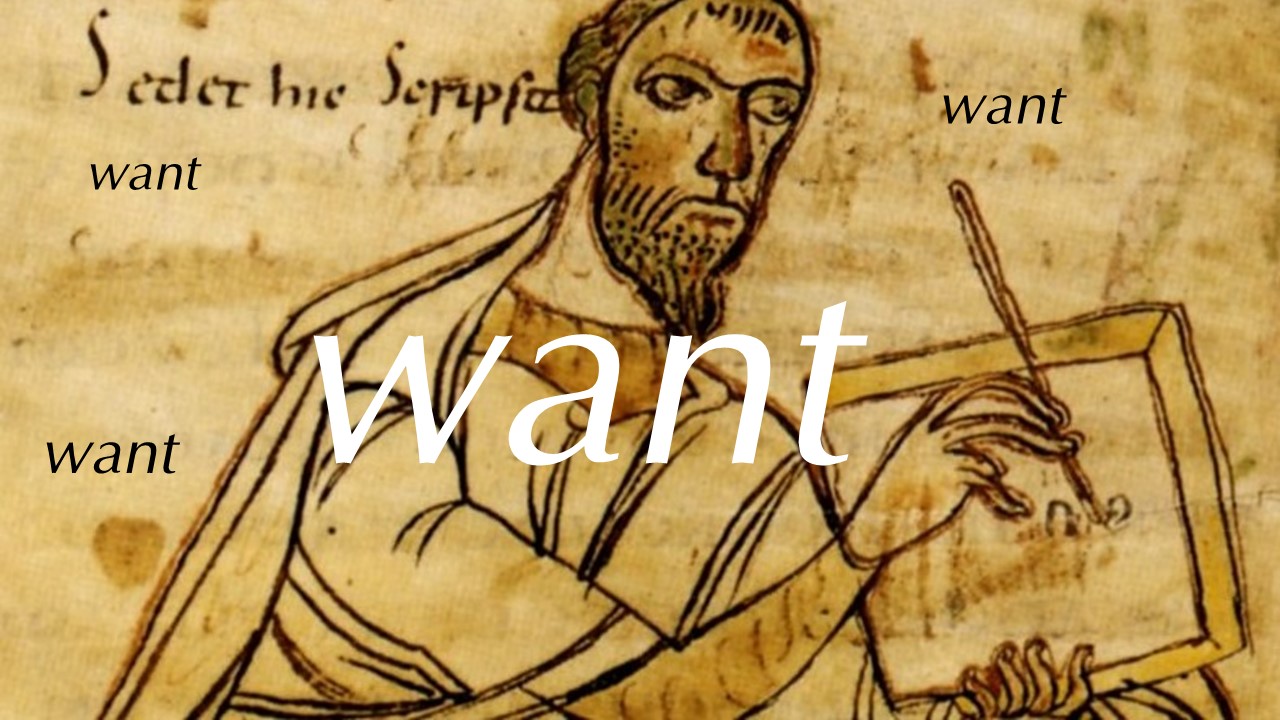


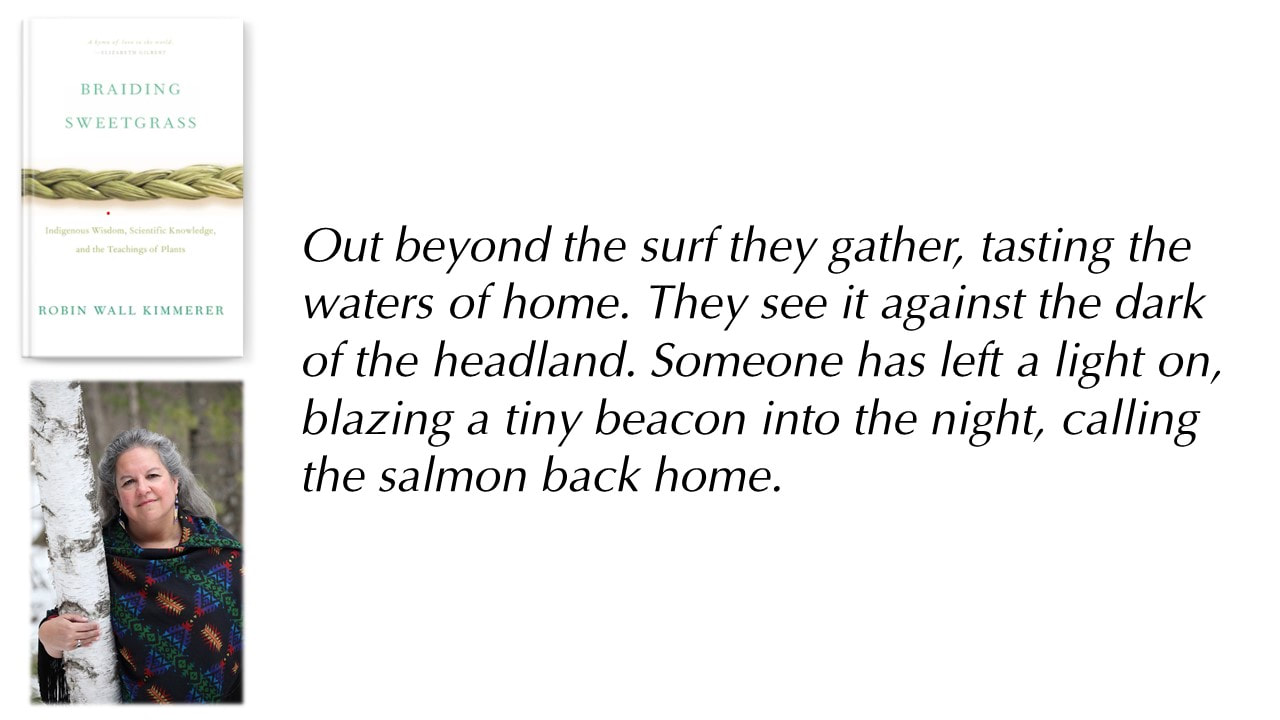
 RSS Feed
RSS Feed